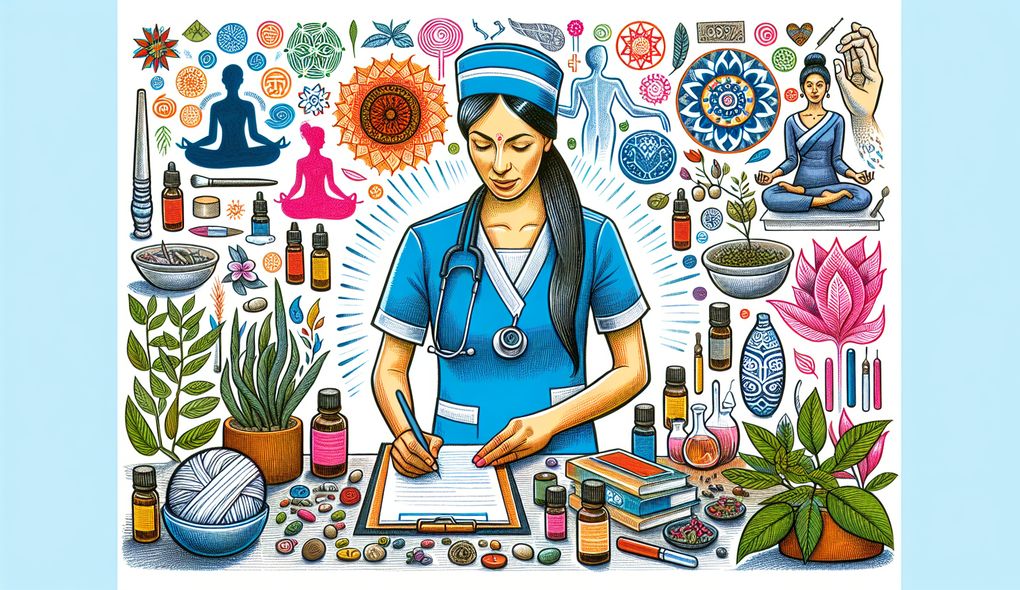Tell us about a time when you used evidence-based research to support your holistic nursing practice.
INTERMEDIATE LEVEL

Sample answer to the question:
During my time as a holistic nurse practitioner, there was a patient who came to me seeking relief from chronic pain. To support my holistic nursing practice, I conducted evidence-based research on complementary therapies for pain management. I delved into various medical journals, studies, and databases to gather relevant information. Based on my findings, I developed a care plan that incorporated acupuncture, massage therapy, and herbal medicine, all of which have been shown to be effective in pain management. I explained to the patient the rationale behind these therapies and how they could complement conventional medicine. Throughout the treatment process, I continuously monitored the patient's progress and made adjustments to the plan as needed. The patient experienced significant pain relief and improved overall well-being, which validated the use of evidence-based research in my holistic nursing practice.
Here is a more solid answer:
As a holistic nurse practitioner, evidence-based research plays a crucial role in my practice. One instance that stands out is when I encountered a patient with chronic pain. To provide the best care, I conducted extensive research on complementary therapies for pain management. I reviewed reputable medical journals, explored databases, and consulted with experts in the field. This research allowed me to develop a comprehensive care plan that integrated acupuncture, massage therapy, and herbal medicine. I explained the rationale behind these therapies to the patient, highlighting their effectiveness in pain management. Throughout the treatment process, I closely monitored the patient's progress and made necessary adjustments to the plan. The patient responded positively, experiencing significant pain relief and improved overall well-being. This experience demonstrated the importance of evidence-based research in guiding my holistic nursing practice.
Why is this a more solid answer?
The solid answer provides more specific details about the patient, the research conducted, and the techniques used. It also addresses the evaluation areas mentioned in the job description, such as clinical assessment and patient care planning, knowledge of holistic health practices, and proficiency in implementing complementary therapies. However, it can still be improved by including more information about interdisciplinary collaboration and cultural competence.
An example of a exceptional answer:
In my role as a holistic nurse practitioner, I consistently strive to incorporate evidence-based research into my holistic nursing practice. One notable experience involved a patient with chronic pain who sought my care. To ensure the best outcomes, I embarked on a comprehensive research journey, conducting an extensive literature review using reputable medical databases, attending relevant conferences, and collaborating with experts in the field. This research deepened my understanding of the latest advancements in complementary therapies for pain management. Armed with this knowledge, I crafted an individualized care plan for the patient, integrating acupuncture, massage therapy, and herbal medicine. I meticulously documented the patient's progress, regularly reassessed their pain levels, and made adjustments to the treatment plan as necessary. By working closely with the patient, I empowered them to actively participate in their pain management journey, educating them about the benefits and potential risks of each therapy. The patient witnessed significant improvements in pain reduction, enhanced mobility, and overall well-being. This experience exemplified the importance of evidence-based research in guiding my holistic nursing practice and reinforced my commitment to staying abreast of emerging trends and innovative therapies.
Why is this an exceptional answer?
The exceptional answer provides even more specific details about the research process, including attending conferences and collaborating with experts. It also highlights the patient's active involvement in their care, which demonstrates the ability to educate and motivate patients. Additionally, it acknowledges the importance of staying updated with emerging trends and therapies. This answer addresses all the evaluation areas mentioned in the job description.
How to prepare for this question:
- Familiarize yourself with reputable medical journals and databases to stay updated on evidence-based research in holistic nursing.
- Attend conferences and workshops related to holistic health practices to expand your knowledge and network with experts in the field.
- Be proactive in seeking opportunities for interdisciplinary collaboration, such as joining committees or participating in case conferences.
- Develop cultural competence by learning about different traditions and belief systems related to holistic health.
- Practice strong organizational and record-keeping skills to effectively track patient progress and adjust treatment plans.
What are interviewers evaluating with this question?
- Clinical assessment and patient care planning
- Knowledge of holistic health practices
- Proficiency in implementing complementary therapies
- Ability to educate and motivate patients
- Interdisciplinary collaboration
- Adaptability to new healthcare trends and regulations
- Cultural competence in dealing with diverse patient populations
- Strong organizational and record-keeping skills

